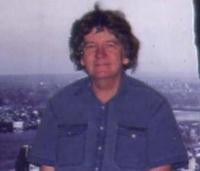"Marine Park," "Lucius," and "Pig Man"
Marine Park
In the swimming pool,
I’m a merman,
I’m jaws,
I’m an orca bursting through
the surface
to the cheers of
a thousand parents
and their children.
And I’m a trick performing dolphin
as well as a flipper-flapping
Olympic freestyle swimmer.
I spin in circles.
I take a thought, as abstract as they come,
translate it into what I do in water.
My milieu is small.
I’m used to oceans.
But amusement is my credo now.
Not my own.
The joy of others.
I live in this world named for the sea
but it is not the sea.
It’s a place where a child can approach
a Leviathan without fear.
My fear is that such a thing is possible.
Lucius
He shot the raven that befriended you.
He was bored.
And the rifle was handy.
As for your garden
he sprayed weed killer
on your roses.
It was to prove a theory –
chemicals don’t discriminate.
And, of course,
he raided your bank accounts.
His philosophy is that
money is to spend
not accumulate.
And then there’s that age-old question –
did she fall
or was she pushed?
I’m referring to your stair-tumble,
the time you broke your arm.
Yet, as an offset,
there were moments
when he lulled you into serenity
with lush, romantic words,
warm compelling eyes
and a spine-fluttering smile.
It would have been even better
were they all directed at you.
Pig Man
Home from work, the old man’s hands are stained with pig’s blood.
His apron’s in the wash but his skin’s another matter. He’s been
all day in the slaughterhouse where the company pays him to crush
the skulls of fattened-up swine trucked in from the hinterland.
His fingers are blood-daubed, knuckles creased red
and he’s crimson-spotted like melanomas everywhere there’s skin.
And then there’s the mind numbed by repetition, a red moon
in the sky of his skull, glowing through empty eyes. Yet, but for him,
who would feed the suburbs and the city, the upper, middle
and the working classes, near and far. Carnage is his trade.
The old man butchers nine to five or the people go hungry.
And then I, being a child, ask how many pigs does it take to feed a city.
The old man says nothing. He’s in the bathroom, trying to rinse
the bloodstains he missed in the work showers. They don’t come off.
It’s the fate of pig killers to be always reminded of what they
do in the daylight hours. The nighttime squeals. It smashes bone.
And hacks at swine meat that won’t give itself up easily.
For the Blakes must have their ham and the Rochesters, their sausages.
He flops on the couch like a carcass. He is thirty one,
and weary and not numb enough to forget what he does for wages.
He’s long made it a rule in this house - no meat
from the pig is to be served. He knows how it’s made, where
it comes from. Pork chops would make us accessories to murder.
***
This is so long ago. The old man is dead. My mother likewise.
I inherited nothing from him – not a snout, not a trotter.
The old slaughterhouse is long shuttered.
The new one is gleaming and metallic.
From what I’ve heard, the blood doesn’t stick.
***
The old man loses his job. We move into a cheap apartment.
His coughing keeps me up at night. He curses his own throat
and that only makes it worse. My sleep is fitful. My fear is not.
For, now he’s home more and arguments soon outnumber the kind words.
I can’t help but hear. Sometimes a glass is smashed against a fibro wall.
My mother doesn’t raise her voice. But this is worse than pigs and blood.
***
One night in May - the shouting is unbearable but the silence is much worse.
Then the old man breaks it by saying to my mother, “That’s it. I’ve had enough.
I’m out of here.” I imagine my mother crying. I imagine correctly. But she’s
relieved also. Relived like some poor sow whose death sentence is commuted.
And I lie in bed, I perspire despite the chill in the air. My eyes are shut
but my ears hear all. It’s as quiet as a corpse in the ground.
I think of death. Of an assembly line of pig carcasses.
And the old man standing over them, mallet in one hand, cleaver in the other.
He’s a giant. He could tear the pigs apart with his bare hands.
And drink the blood. Not just the pig’s blood. But mine. My mother’s.
In a nightmare, I’m dumped into heap of swine carcasses, see the old man
out of the corner of my eye, as he wipes that blood on his clothes, his face.
And then, the scene changes. He’s on his death bed, just the shell of a pig-killer.
I bend over his shrunken form, whispers my very last question in his ear.
How much pork does it take to feed a single family over the course of a lifetime.
His hand rises. It come down hard. There’s no pig, there’s nothing, in its path.
“This much,” he says. “This much.”

John Grey is an Australian poet, US resident, recently published in Stand, Santa Fe Literary Review, and Sheepshead Review. Latest books, Between Two Fires, Covert and Memory Outside The Head are available through Amazon. Work upcoming in the McNeese Review, La Presa and California Quarterly.


